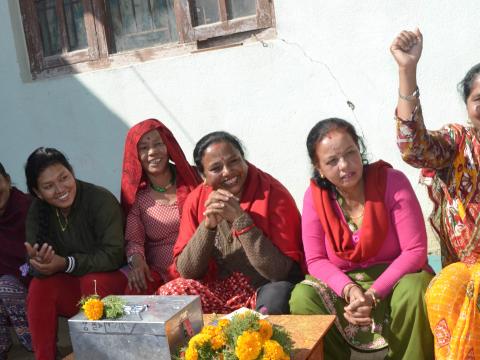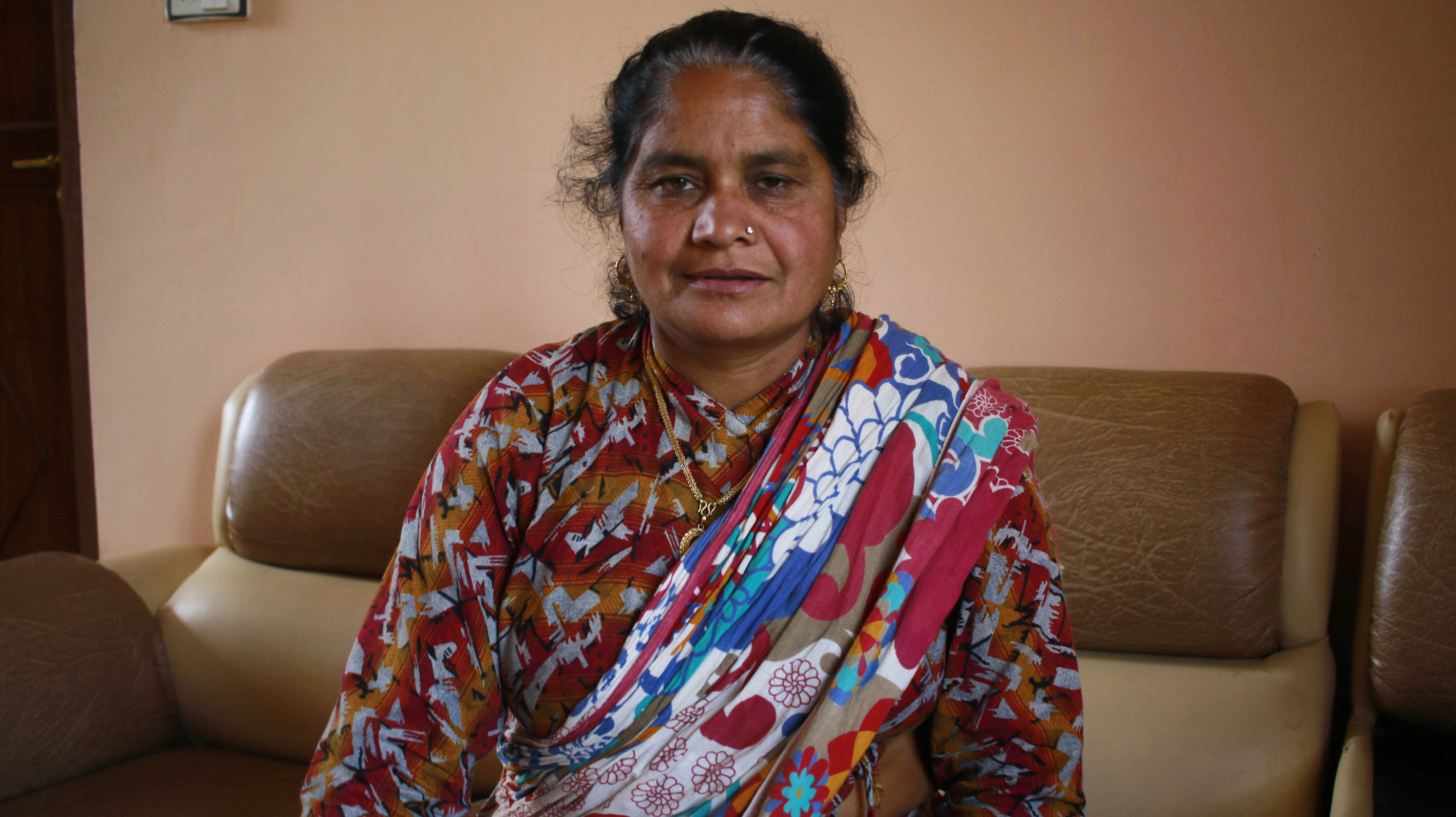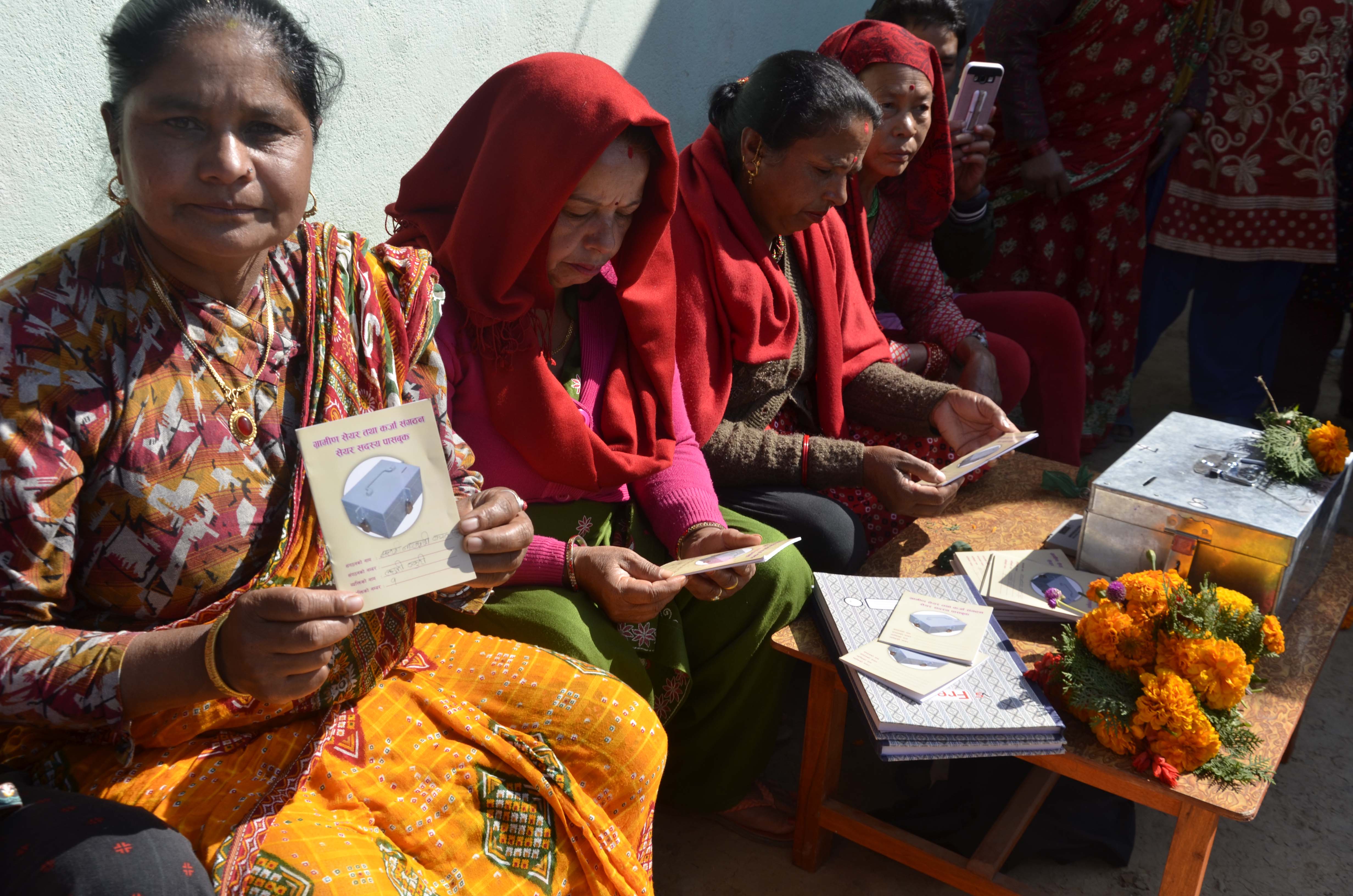Women thrive through saving

A year ago, when her husband passed away due to kidney failure, Laxmi’s life came to a standstill. As she was dependent on her spouse for almost everything, she thought it impossible to carry on without his support. With much difficulty, she mustered the courage to compose herself and managed her mourning family. The 57-year-old resident of Nagarjun Municipality in Kathmandu Valley is an example of Nepali women who have behind discriminated and their right to economic empowerment infringed.
The majority of women in Nepal are discriminated across gender lines, and the patriarchal nature of Nepali society has pushed Nepali women to lag behind in several socio-economic dimensions.
As a change in the turn of events, World Vision introduced the Building Access to Safe School and Employment project in Laxmi's community. The concept of Village Saving and Loan Association was introduced which looked at bringing together people facing such challenges to become a part of a business model of saving. ‘Satyanarayan Savings Group’ was formed simultaneously and Laxmi was nominated as the group’s president.
Consisting of 23 members, the group received capacity building on financial literacy and ways to develop saving habit in an orderly manner. Each member maintains a passbook which records their savings, loans and repayment. They meet twice every month, at which time, each of them contribute a fixed amount which goes into the savings box.
The amount they save is separated into two parts referred to as ‘loan fund’ and ‘social fund’. The members are then allowed to take ‘micro-loans’ from the loan fund with minimum interest rate, far lesser than a bank or a financial institute would levy. The social fund on the other hand can be provided to members for emergency purposes or chose to be spent for a social cause or for a purpose jointly agreed upon.
In the previous cycle, the group was able to manage a good amount of saving which was distributed equally (US$ 51 per member) when it was dissolved. Few months into the second cycle, they have been able to save NRs. 38,000 (US$ 380).
“I feel the push to move on since becoming a part of this group. It consists of women like me who always had to run to our husbands to ask for money every time we needed to buy something. Things are different now; I myself was able to support my son to start a restaurant by burrowing money from the group and have already paid it back with interest,” shares Laxmi.
Apart from supporting their children’s business ventures, members of the group have also been able to take loan to start businesses like goat farming, utensil shop and even supported their spouses in their business ventures. They feel economically independent and empowered.
The business model is proof that with a little push, women can go a long way. Earlier, Laxmi knew saving was a good habit but she did not have a safe way to do it. She had no involvement in decision-making or control over what happened with the money at home. But with a little support from World Vision and its implementing partner Child Workers in Nepal concerned centre, not only were they able to become financially independent but they were also able to influence their family members to do the same.
With a part of their saving designated for joint purposes, they hope to get an office space soon in the coming days.
MORE ABOUT THE PROJECT
- Building Access to Safe School and Employment project was implemented in Nagarjun Municipality after the 2015 earthquake. The goal of the project was to improve community resilience by promoting school safety and economic opportunities in the earthquake-affected areas.
- To achieve this goal, the project sought to address the issues of youth unemployment and school infrastructure damage at the schools.
- The Village Saving and Loan Association was a part of this initiative as the project looked at developing ownership of the communities through a sustainable business model.
- By the end of the project’s tenure, infrastructure of four schools were reconstructed and renovated; they are currently implementing school safety initiatives and 116 households have a youngster who is gainfully employed.
- Similarly, the project supported the formation of 69 Village Saving and Loan Association groups consisting of 1,012 members with a collective fund equivalent to US$ 34,621.



